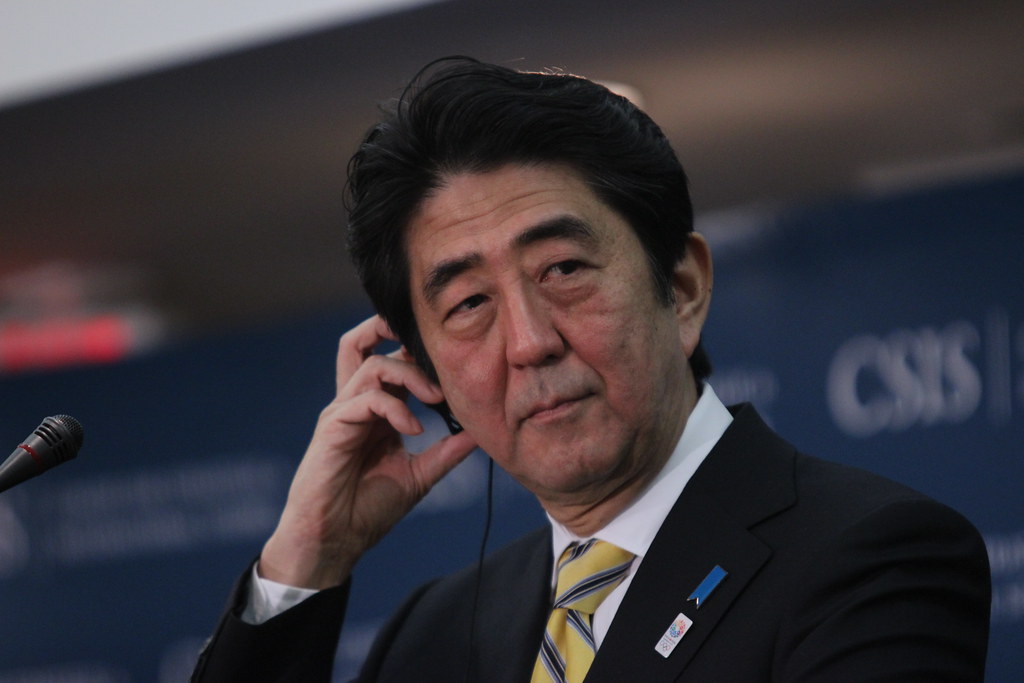Sevinç İrem BALCI
On July 8, 2022, in a terrific incident, former Prime Minister of Japan Shinzo Abe was shot during an event in the city of Nara and lost his life at 67. Abe was an influential politician in Japan. He served for eight years as Prime Minister. He introduced significant policies in many aspects, including social life, foreign policy, economics, and the military. Some of the policies he introduced did not succeed; however, it is for sure that they influenced today’s politics in Japan.
After serving as a PM between 2005-2006, he returned to the office in 2012 until 2020. Because of Japan’s history of swiftly changing prime ministers and the fact that Abe himself only held the position for one disastrous year earlier, it was an impressive feat of longevity.
Since the breakdown of the fast growth of the bubble economy in 1990, Japan’s economy has been stumbling for more than 20 years. It appeared to have no chance of improving when Abe assumed office in 2012. The Japanese yen has increased in value in what financial commentators called a “haven” impact even as economic growth slowed. The prospects for international trade, a crucial component of the nation’s industrial base, were subsequently made worse, particularly in the auto industry. Abe gave off the impression that he was confident in his ability to make things better, declaring that his economic policies would depart from the incrementalism that had resulted in a glacial pace of change that was unable to keep up with a faster-changing global economy.
The new economic policy named “Abenomics“ aimed at increasing productivity by reducing red tape and business taxation and increasing the country’s rapidly aging population by encouraging more women, pensioners, and foreigners to work there. The policy has three main elements: loose monetary policy, fiscal stimulus, and structural economic reforms. Besides Abenomics, another term related to including women’s workforce in Japan’s economy was introduced as “Womenomics.” Abe referred to this policy: “Creating an environment where women find it comfortable to work… is no longer a matter of choice for Japan. It is instead a matter of the greatest urgency.”
Because of their long durability, he was able to pursue long-held goals such as establishing a national security council, consolidating personnel decisions within the government under the prime minister, reinterpreting the Japanese Constitution to allow for collective self-defense by the Self-Defense Forces of Japan, and even making a serious but ultimately unsuccessful attempt to amend the Constitution. Moreover, Abe was resolved to increase Japan’s defense spending, which is currently the seventh-largest in the world, to increase the country’s security. He was determined to show the US that Japan would be a vital partner in battle.
Article 9 of the pacifist Japanese Constitution, which prevents the Japanese military, known as the “self-defense force,” from offering Japan a more formidable set of options in terms of international security, has been the subject of several attempts by Abe (with varying degrees of success).
However, he was met with fierce opposition from all sides. Most Japanese are still likely to favor Article 9; they have no desire to change the status quo of the danger of another horrible war, in opinion of many. The Japanese may not have enjoyed that their Constitution was primarily created by their conquerors. Abe’s request for modification was met with vehement criticism from moderate Liberal-Democratic Party (LDP) members and leftist opponents of the long-ruling LDP.
Besides the internal military issues, Abe was also known as the father of Quadrilateral Security Dialogue (QUAD), as he suggested the creation of a platform were Australia, India, Japan, and the United States (US) do military training and exercises together, and coordinate defense policy. Now QUAD is quite significant for the security of the Asia-Pacific region.
When Shinzo Abe resigned his duty in 2020, he was perceived as a successful and influential PM; however, he sometimes faced some criticisms. However, his assassination has deeply afflicted the Japanese people, as he was not profoundly a beloved one but quite a respected leader.

